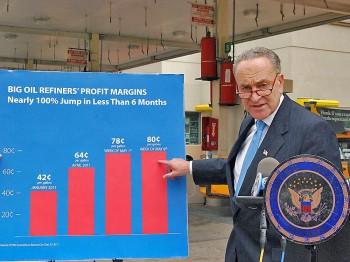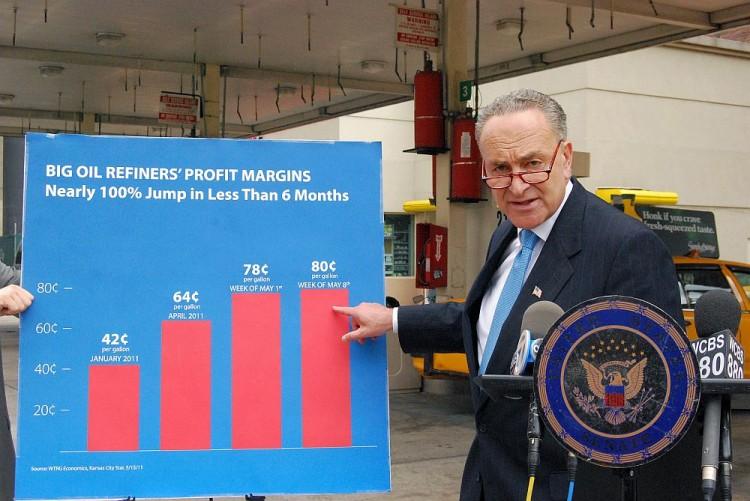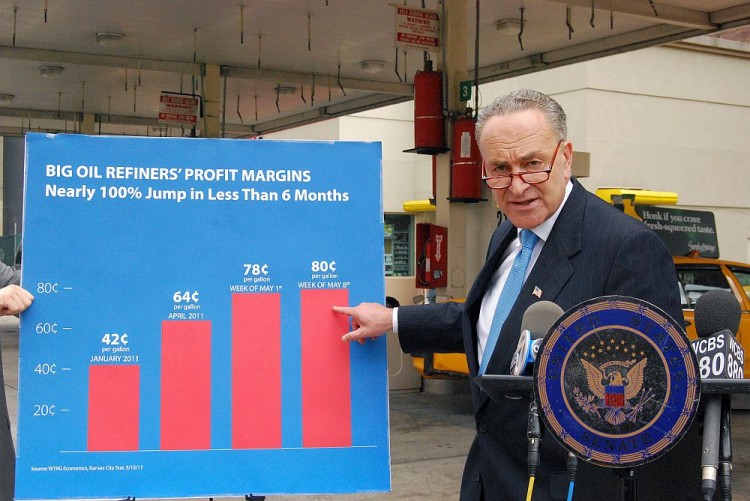Schumer Demands Oil Refinery Investigation
Sen. Charles Schumer claims that gas prices in New York could be much lower.

PRICE FIXING: Sen. Charles Schumer refers to a chart showing the increase in U.S. oil refineries' profit margins in 2011 outside a BP gas station on 10th Avenue in New York City on May 29. Catherine Yang/The Epoch Times
|Updated:






